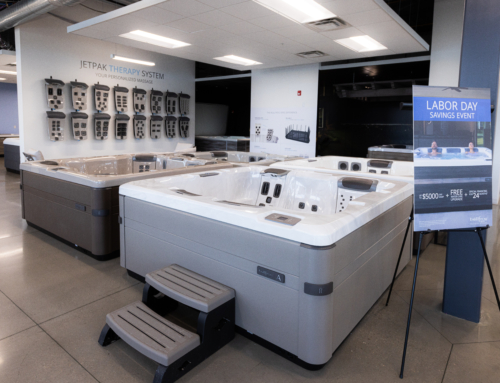So, you have a sales position in your store that needs to be filled. What’s your first step? For many hiring managers, it’s to pull open a file drawer of applications and resumes and start sifting through candidates. Many will also post the opening in the newspaper or on internet job boards and wait for responses to start trickling in. The problem is how to tell the good candidates from the bad ones, especially when looking at candidates for sales positions.
The top 1% of workers in terms of productivity, add(s) about $5,000 per year to the company’s profit, while a bad hire costs about $12,000 per year.
People applying for sales positions should be using their resumes to sell themselves. This can be a great opportunity for companies to see how well candidates sell their own skills and qualifications, if they include specific examples of job successes, and whether experiences are described in ways that present the applicant as a good fit for your organization. Unfortunately, this same sales ability may make it easier for bad candidates to sell themselves as something they are not. Preparing for and conducting a thorough interview, along with awareness of red flags, can keep you from making hiring mistakes.
Interview Preparation
Did you think it was only the candidates who need to prepare for the interview? If you did, you would be very wrong. You must know what you want in an employee before you start looking for one. That means the hiring process must begin before positions ever become available. Here’s how to jump start your search for quality employees.
1. Always be looking
Always keep an eye out for new talent. Keep a list of people you come into contact with, people who impress you as someone you’d want to work for you. Get their contact information and call them when a job becomes available that you think they would be a good fit for. Don’t depend on a trickle-in resumes and job applications. Use your list to actively pursue potential talent.
2. Know what you want
In addition to always looking, Mel Kleiman, director of a Houston based employment consulting firm suggests employers “put together a 10 point list of why people should work for you.” Talk to the best employees and sales people currently working for you. Ask them why they like working for you and use those responses to create your ten point list.
3. Create an interview structure
A Harvard Business Review article discusses how “people are biased, emotional and inconsistent when interviewing.” Their research indicates that unstructured interviews have only a 20% likelihood of resulting in the hiring of a successful candidate. They suggest using interviewscorecards to create a more structured interview process.
Too many employers consider checking references to be just a formality, but that is a serious mistake.
Perhaps the most important thing you can do to prepare is research the candidate prior to the interview. Review their resume, perform a google search, check social media sites and have your questions prepared in advance. Try to limit it to 4-6 questions for a 30-minute interview and 8-12 questions for a 1-hour interview.
Conducting Interviews
When you schedule the interview, prepare candidates by letting them know in advance what to wear and what to bring to the interview. Have them prepare questions for you in advance and give them a general idea of what they can expect, such as the number of interviewers they will be meeting with. The more comfortable the candidate, the more professional and productive the interview session will be. Here are a few tips for the actual interview:
- Instead of asking them their strengths and weaknesses, give them a real problem and have them describe a solution. John Sullivan, professor of management at San Francisco State University suggests describing a company process and asking the candidate to identify inefficiencies.
- Get them to tell the story of a successful work experience or a difficult experience they overcame to gauge whether their values match your company values
- Wait until the second half of the interview to sell your organization. In other words, wait until you know whether or not you’re interested in hiring the candidate. It’s a waste of your time and theirs to spend the first twenty minutes talking about how great your company is if, in the end, you discover this isn’t the right person for the job.
Finally, ask the candidate why they want to work for you and why they applied for this particular position. They should be able to answer with specific information that shows they have researched you, the job and your company. Remember, how well the candidate sells themselves is how well they will sell your products.
Red Flags
Now, about avoiding those bad hires. Start with the resume and the knowledge that if it sounds too good to be true, it probably is. These are some fairly common resume signs that a candidate may be a bad hire.
- Jobs with unknown or unverifiable companies
- Over-inflated job titles
- Questionable degrees and diplomas
- Providing colleague names instead of employer names as references
ALWAYS verify the information on the resume. A quick internet search of previous employers and a simple phone call to a registrar’s office can save you the trouble of even interviewing a potentially bad hire. If the resume passes and an interview is scheduled, be prepared for these five red flags during the interview itself.
- Their responses are vague and he/she changes the subject when asked for details.
- They are openly rude or hostile.
- They’re unable to provide reasons for career shifts.
- They don’t have any questions about the actual job, but plenty about benefits and work space.
- They have little or no knowledge about your business.
After the interview, be sure to conduct rigorous reference checks. Too many employers consider checking references to be just a formality, but that is a serious mistake. Checking references is where you see if candidates have under- or over-stated their qualifications and where you find any professional skeletons in their employment closet. Consider the following during reference checks:
- Make sure you talk to the right people: assess leadership by talking to former subordinates, assess job performance by talking to former supervisors and assess teamwork by talking to peers and co-workers.
- Ask specific, open-ended questions to gain the most information, and avoid questions that require simple yes or no answers.
- Ask former employers what it’s like to work with the candidate or where the candidate could show improvement.
- Ask if the candidate’s behavior ever reflected negatively on the business.
Another important reference pool is the people in your organization that had contact with the candidate. How did they treat the receptionist? The associate who greeted them while they waited? Were they courteous or rude, were they gracious or condescending, or were they polite or disrespectful? How they behaved with people other than the interviewers provides insight into their true character.
The Cost of a Bad Hire
One study showed that “the top 1% of workers in terms of productivity add(s) about $5,000 per year to the company’s profit, while a [bad hire] costs about $12,000 per year.” Just one bad hire could cost your company around $12,000 a year. That is a lot of money, which is why it is important that job candidates be able to answer these five deal-breaker questions:
- What does our company do?
- Who do we sell our products and services to?
- How old and how large is our company?
- Where does our company do business?
- What is one of our current major initiatives?
If the person applying for a position in your company is unable to effectively answer at least the first four of these five questions, the interview is over.
Breaking it Down…
Sometimes you just don’t know if you’ve made the right choice until after seeing the person in the job. Whether or not you find yourself in this situation, using a probationary period is an excellent way to ensure you have made the right person. If it doesn’t work out, all you’ve really lost is some time and a whole lot less than $12,000.









Leave A Comment